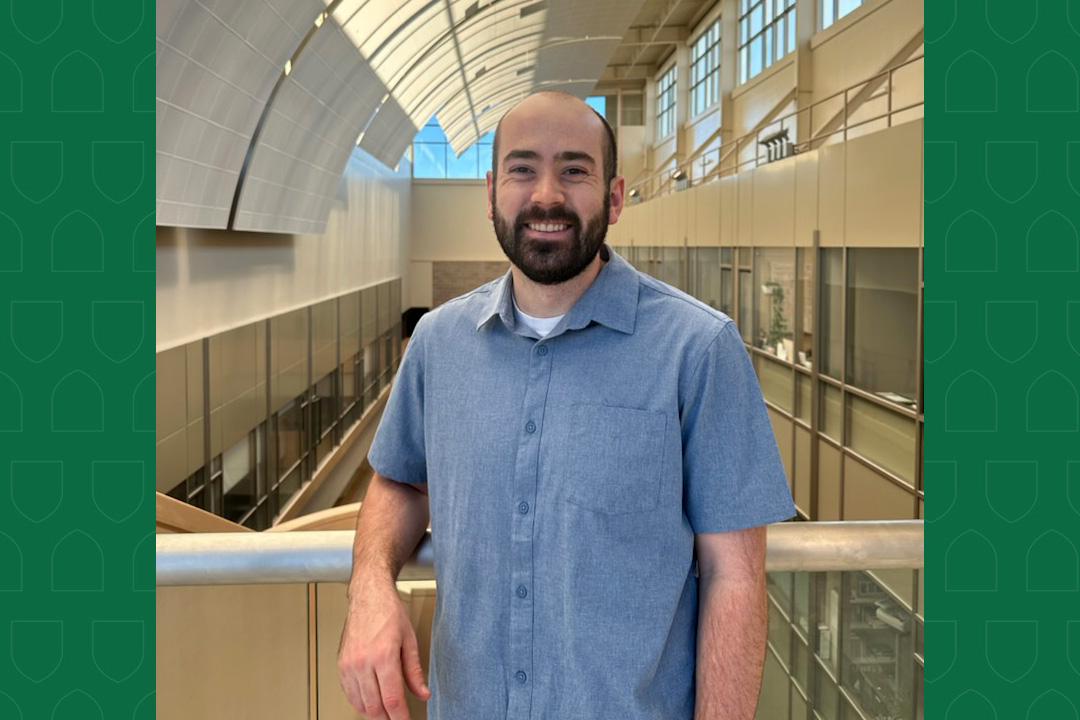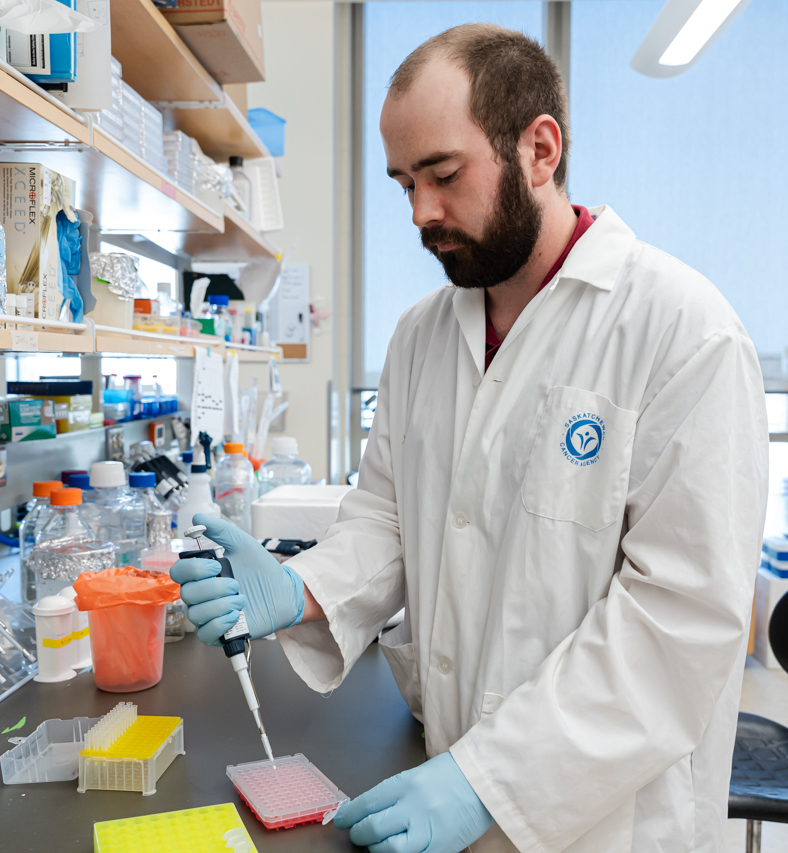
Pursuing MD and PhD degrees
Jared Price is one of two students enrolled in the Doctor of Medicine (MD) and Doctor of Philosophy (PhD) dual program at the University of Saskatchewan (USask).
This pathway merges medical education with scientific research and typically spans six to seven years.
The MD-PhD program aims to train a diverse and highly skilled cohort of physician-scientist scholars and leaders and provide students with a comprehensive background suitable for bench-to-bed practice.
Students in the program begin with two years of medical training before transitioning into the research phase, which is two to three years. After finishing the research portion and obtaining their graduate degrees, the students return to the MD program to complete their final two years of medical training.
Price is currently immersed in the research component of the program and will return to medical school in summer 2025. His research focuses on identifying and validating novel targeted cancer therapies based on tumor molecular markers.
We asked Price a few questions to learn more about his studies, research interests and career aspirations after graduation.
Can you share a brief overview of your academic background. What degree did you earn prior to this program?

I received my Bachelor of Science degree in biochemistry from the University of Regina between 2016 and 2020. Research has always been important in my education, I had the privilege of completing three National Sciences and Engineering Research Council of Canada (NSERC) Undergraduate Student Research Awards (USRAs) during my time as a student along with an honours degree focusing on evaluating phytochemicals for antifungal activity.
Following my honours thesis, I was fortunate to have the opportunity to travel to Concordia University and engage in chemogenomic research in yeast prior to starting medical school.
What inspired you to pursue both an MD and a PhD degree? How do you see these degrees complementing each other?
While in my undergraduate studies, I was faced with the choice of pursuing a career in professional colleges or academia following graduation. Like many other students, I could see the appeal of both options but I could not justify forgoing one or the other. I had always loved science and made that a priority through my undergraduate degree.
I asked myself if I would rather apply the biology and chemistry I had learned in a clinical setting for medicine, or contribute to the field as a scientist. For me, science had to be both and so that made the choice clear – I would choose both as an MD-PhD.
The degrees complement each other wonderfully. On paper they may appear different but I find them to be nearly mirrored. The share a biology focus. Both engage in physical skills with your hands, soft skills with colleagues and other professionals, communication of advanced topics with non-researchers, and, of course, a tremendous amount of reading. Where they differ is where they best support each other.
Medicine deals with the known and research explores the unknown. Medicine is the guiding hand and research is the flashlight probing the darkness. This program grants you the skillset to learn and apply medical knowledge to a variety of clinical contexts, and to know when your knowledge is insufficient and how to find the answers you need.
Could you tell me about your area of research? What are your primary objectives for your research?
Broadly speaking, my research involves understanding genetic interactions in cancer cells that may be exploitable for therapies. The Vizeacoumar lab (led by Dr. Franco Vizeacoumar) engages in a systems-based approach to screen genes for targeted vulnerability against different biomarkers. While I have engaged in many different projects in this lab, my primary objective is currently to develop a mechanistic understanding of the targeted toxicity that harms the cancer cells but spares the normal somatic cells of the body.
What challenges have you encountered balancing medical school with your research?
This program is very effective at separating the two worlds of research and medical education. While there is some room for compromise, such as retrospective chart reviews during medical school or shadowing physicians during research, the expectation is that most of your time and efforts should be focused on the respective portion of that program. This approach is excellent for ensuring that candidates prioritize the different parts of the program properly but can lead to some regression later.
I find myself so immersed in the research that my medical background is beginning to wane. This is mitigated by regular review and revisions of previous course material, staying curious and being informed about different medical developments, and at the end of the research program, enrolment in a clinical reorientation program.
What are your goals after completing the MD-PhD program?
I would like to do my residency in oncology. While I haven’t decided if I want a medical or surgical focus to it, I plan to decide that once I return to clerkship at the end of my research. My goals are to eventually achieve a mixed practice as a clinician-scientist where I can split my time between managing my own research program as well as clinical practice.
My time in this program has demonstrated clearly to me that there is synergistic benefit to immersing oneself in both worlds. ‘Benchside to bedside’ is a common motto for medical research and as a clinician-scientist, occupying both the bench and bedside will offer unique opportunities for both my research and clinical practice to flourish.
What advice would you give to students considering a combined MD-PhD program? What do you wish you had known before starting?
There are a couple things that are important to know and the first is how research and coursework differ. While coursework is clearly defined with dates, exams, syllabi, and other key aspects that restrain its scope, research is far more flexible.
Research is often self-driven, especially in a PhD program, where there is a significant learning curve and where the motivation and direction generally comes from yourself. There is a no study guide or lecture slides that inform you of what experiments or results are needed to progress your research questions. A lot of people, including myself, struggle with that aspect.
The other side is that it is a significant commitment for time. While research stipends essentially freeze the growing student debt from medical school, the PhD portion generally lasts 3-4 years which will force you to change your plans.
